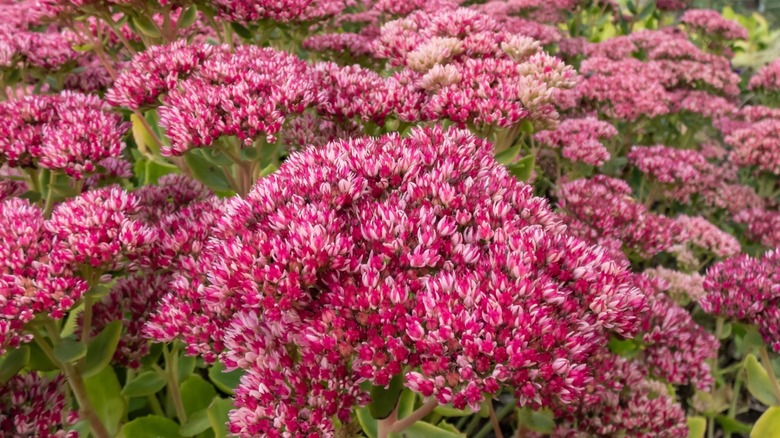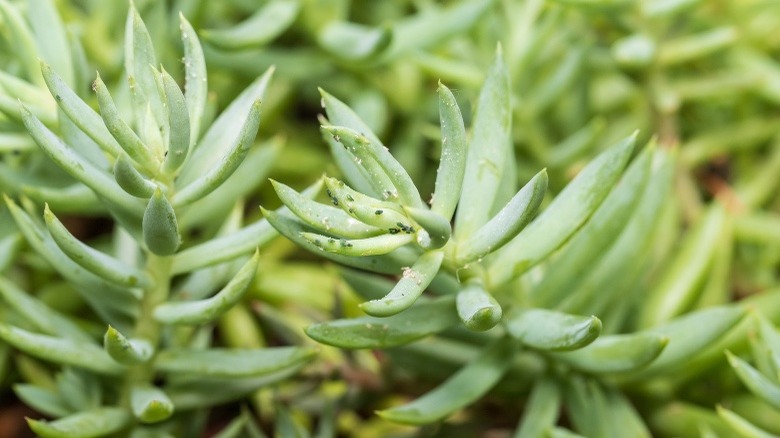What To Do About Wildlife Eating Your Sedum Buds
It's frustrating to find your sedum buds chewed down to the stems. Sedum, also called stonecrop, is one of those hardy plants you'd think nothing would touch. It's tough, thrives in most places, is a long-blooming plant, and is generally low-maintenance. But, as some gardeners know too well, wildlife and other critters can occasionally turn sedum into a snack. Let's look at who might be nibbling your buds and how you can keep your plants safe without going overboard.
If you're in an area with deer, even though sedum is deer-resistant, it isn't deer-proof. During times when their usual food is scarce, they'll turn to your garden for a quick bite. Try setting up a wire fence around your sedum or use a deer-repellent spray. These sprays are safe for plants and just make the sedum smell unappetizing to deer -– without harming them or the environment. Rabbits are another garden regular, so if you see nibbled buds in an area that gets a lot of rabbit traffic, you might want to try a low garden fence or some chicken wire around the sedum bed. Some gardeners also swear by setting up motion activated sprinklers to keep rabbits away.
Birds sometimes snack on sedum buds, especially in dry weather. They're often just looking for a bit of moisture from the buds rather than eating your whole plant. If birds are your sedum bud diners, adding a birdbath nearby can help. Sometimes they'll leave your plants alone if they have a more accessible water source.
Bugs and small critters that eat sedum buds
When it comes to bugs, aphids can be the main culprits. These tiny pests love new growth, and they'll sap the life right out of your buds if you let them. There are a few ways to get rid of aphids. A strong spray of water usually knocks them off, or you can use a gentle insecticidal soap if you prefer. Another trick is to introduce ladybugs. They're natural aphid predators and do a great job keeping aphid populations in check. While slugs and snails might not go straight for the buds, they'll happily chow down on new growth, which can still harm your sedum's health and the emerging buds. Slugs and snails love damp, shaded spots, so try keeping the area around your sedum dry and clean. Some gardeners also put crushed eggshells around the base of their plants – slugs and snails don't like the sharp edges, so it's a natural way to keep them at bay.
In some areas, chipmunks and squirrels might also be your culprits. They're naturally curious and sometimes dig around plants or nibble on buds just to see what's there. Pepper sprays or fake motion-activated owls can help send these critters elsewhere as a simple way to protect your plants without causing any harm to the animals. Pine cone mulch can also be effective at deterring small animals like squirrels.

